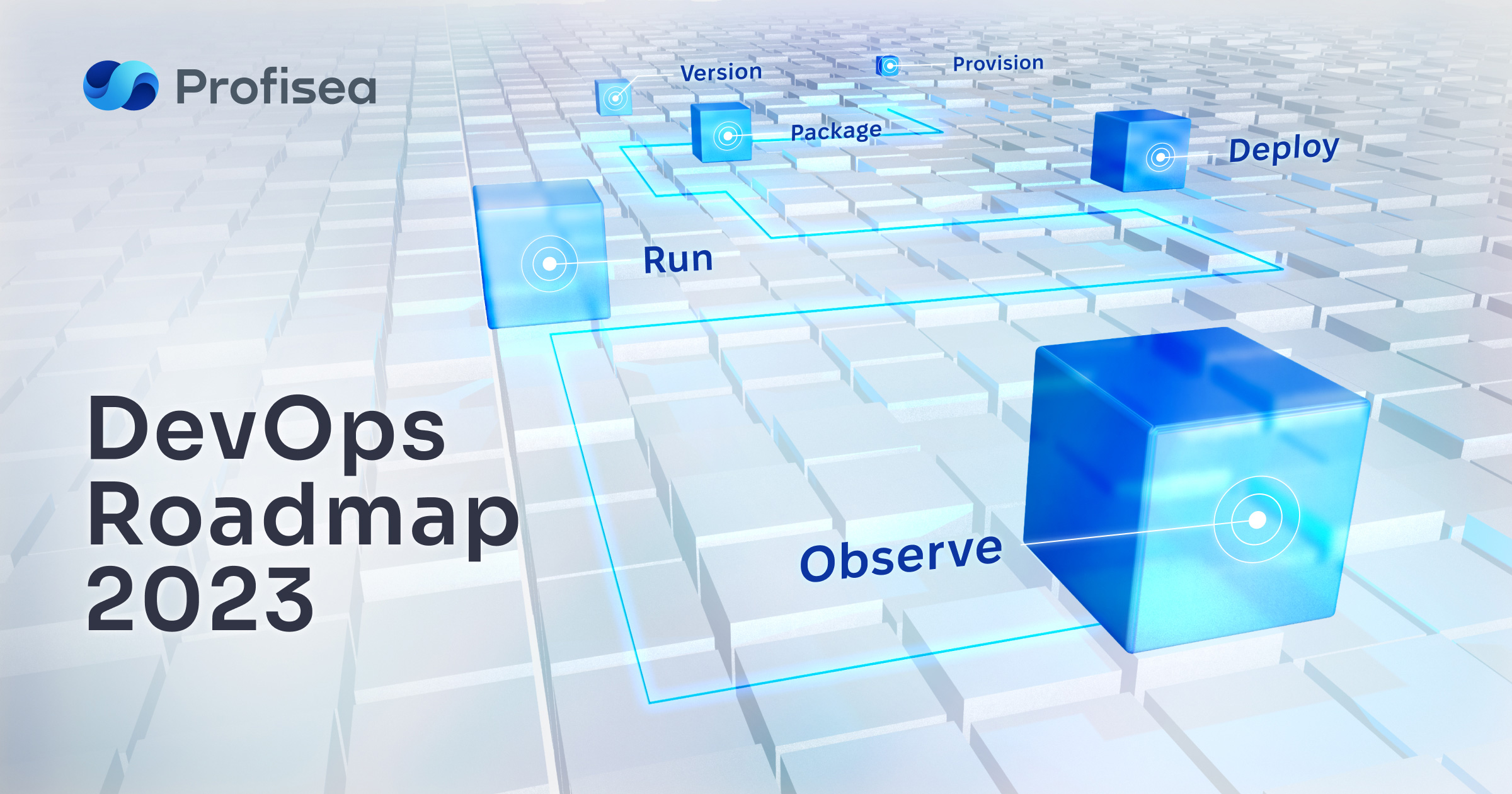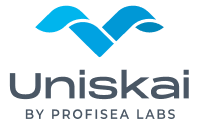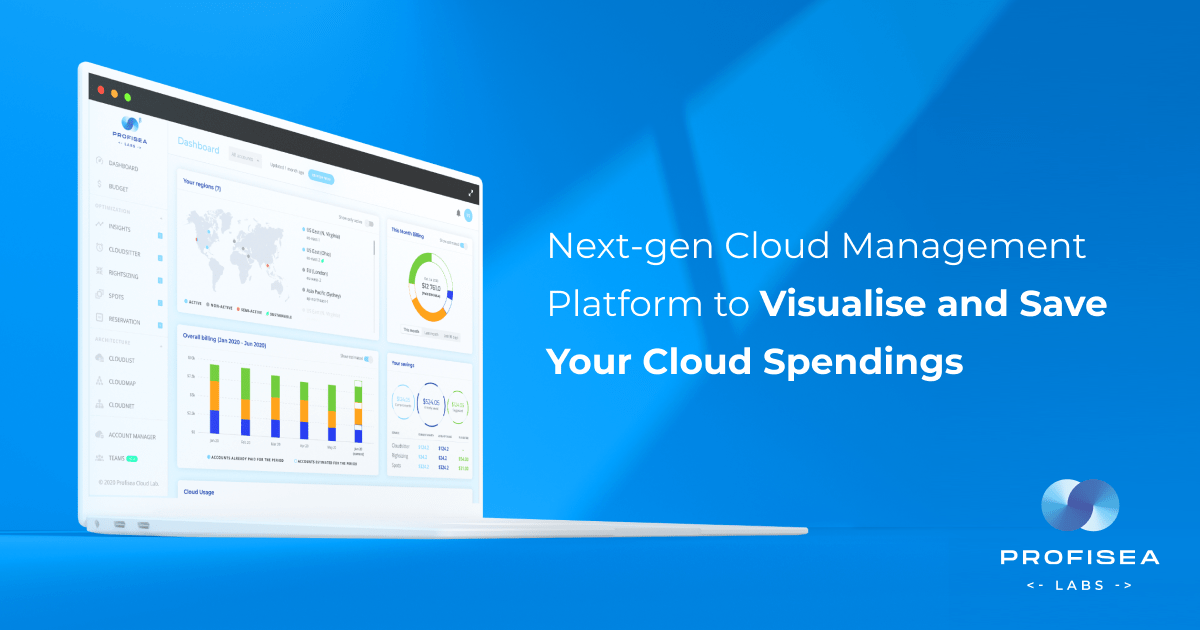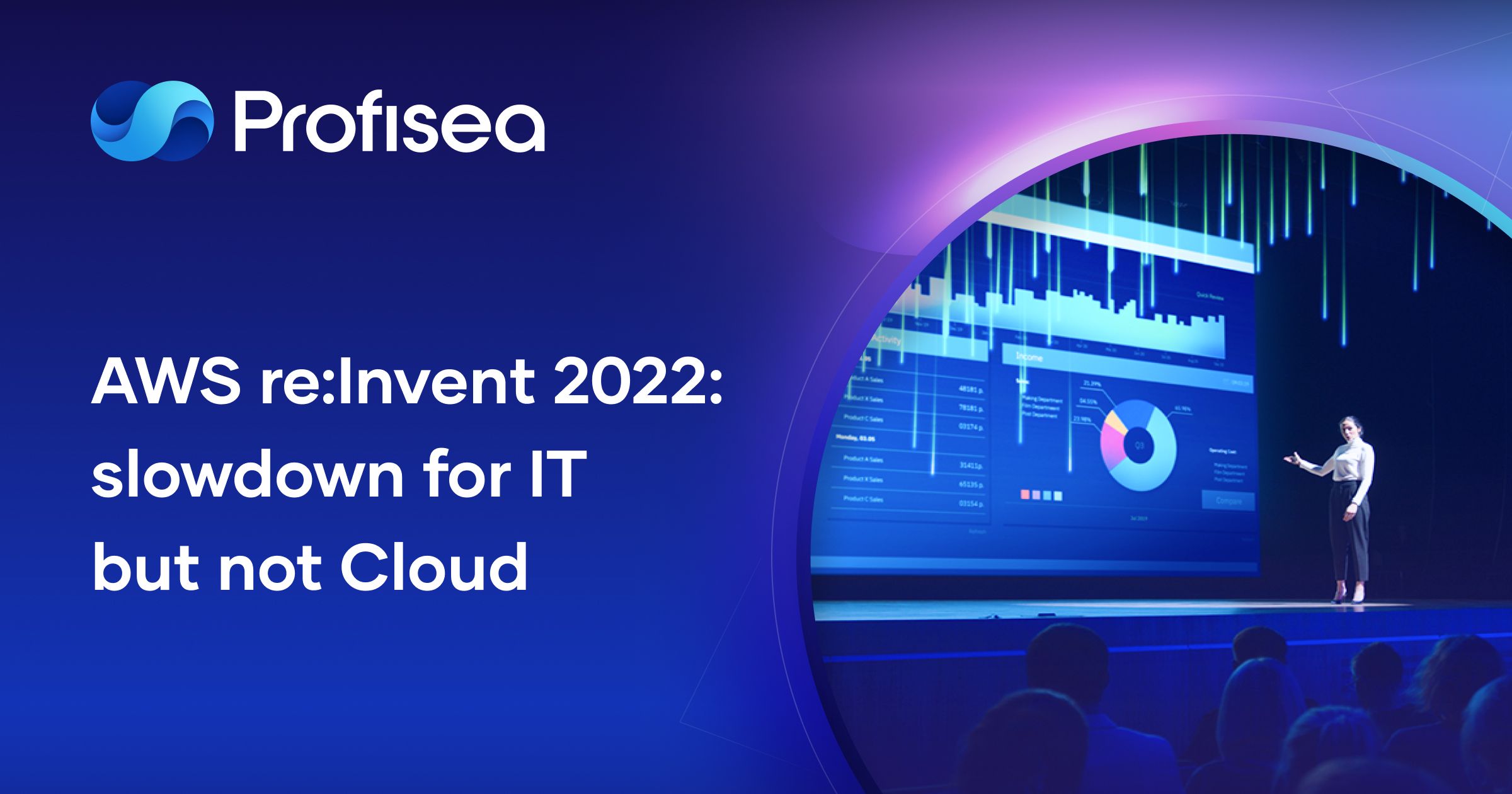Ideal DevOps roadmap 2023
As a DevOps engineer is expected to be among the most in-demand jobs in the IT industry in the coming decade, the DevOps roadmap becomes a trend in Google searches. The IT giant reports that over 75% of companies currently use or plan to implement DevOps to deploy software in the near future. What didn’t exist as a separate job a few years ago is now one of the most wanted positions in the tech industry.
The DevOps demand is visible on job platforms as well: indeed.com, for example, has over 10,000 proposals in DevOps job listings, and on LinkedIn, there are more than 30,000 DevOps engineer vacancies only in the United States.
DevOps is not an easy job, and very often, it’s very difficult to choose the right path to cover so many tools and practices. Our rich experience proves that only 25-30% of candidates pass interviews for the middle DevOps engineer position. That’s why, on these holidays, Profisea presents you with an ideal DevOps roadmap for 2023, offering our best Cloud engineers’ insights into the fundamentals and skills required to jumpstart your desired career.
DevOps soft skills
DevOps delivers software with shared authority and rewards, combining development and operations into one seamless workflow. A DevOps engineer deeply understands SDLC, builds digital pipelines, and leverages software tools to solve classic application programming and deployment challenges.
It takes a specific type of person to be a DevOps. Profisea’s top DevOps manager states these “soft skills are of great importance because it’s almost impossible to change your behavior – unlike tech skills that require learning new knowledge”.
You have to be a generalist with highly-developed analytical and strategic high-level thinking to compare, evaluate, make quick decisions, and see the connections between the tools, the bottlenecks, issues, and solutions.
Profisea always engages the DevOps team people with creative and innovative thinking to increase the quality of product delivery. Our top DevOps experts enjoy optimizing SDLC processes, solving bottlenecks, automating routines, and seeing smooth, streamlined CI/CD.
At Profisea, we also value rich speech and unconventional phrases. If one builds sentences correctly, this person can organize working processes. DevOps engineers communicate a lot with customers, so the ability to explain issues is critically important. Our top managers remember the case when:
We even had to say goodbye to a couple of excellent DevOps engineers a few years ago because they were using foul language in everyday communication. And this is absolutely unacceptable in our company
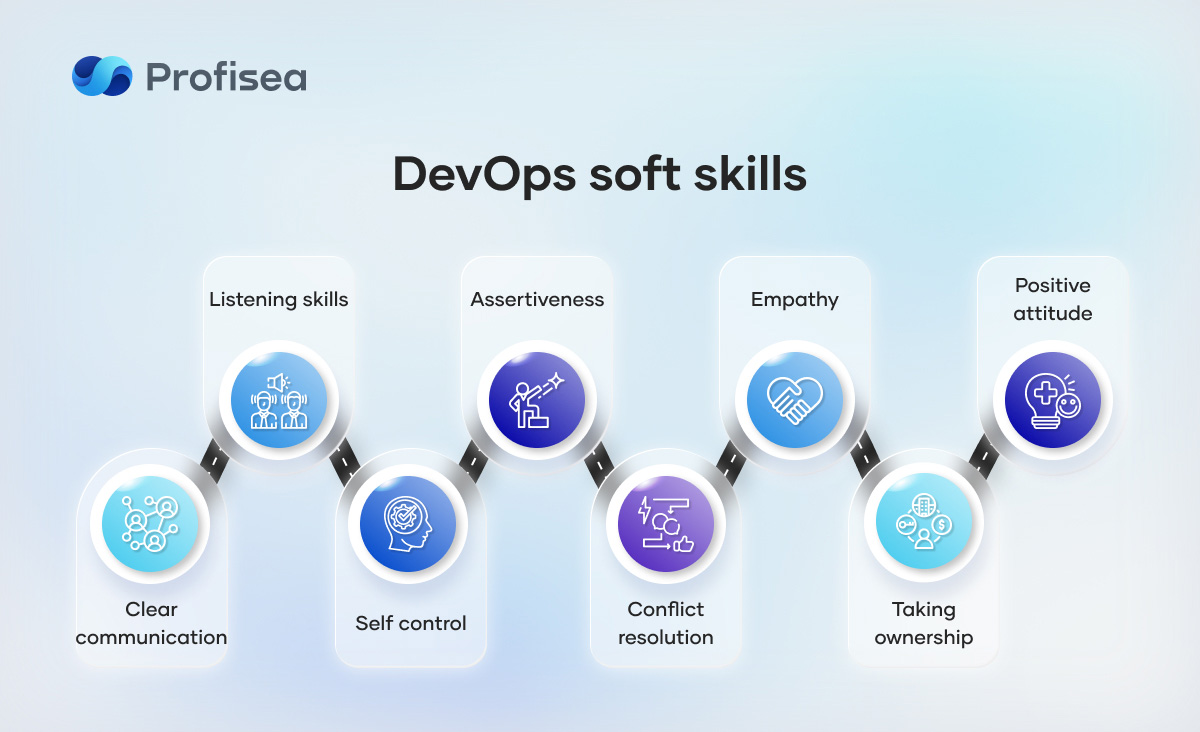
DevOps fundamentals
It takes years of experience to become a truly effective DevOps practitioner and master rapidly changing tools and methodologies. But there are three fundamental industry-dominant pillars every DevOps must know:
- Operating system
- Programming language
- Cloud technologies.
Linux is where everything runs and what you must keep learning. You can be an awesome DevOps practitioner, but staying entirely within the Microsoft ecosystem is far more painful and with fewer job opportunities.
Python is the dominant back-end language these days, easy to get started with, and widely used. It is very prevalent in AI/ML, so if you ever want to transition from DevOps to another hot field, you’ll be all set!
Becoming a DevOps professional without a solid understanding of how a Cloud works is impossible. And Amazon Web Services, Google Cloud, and Microsoft Azure are the dominant players in this space, offering the richest set of tools to work with.
Linux, Python, and Cloud are not going to be something that you can learn quickly – and move on. They are very complex high-level concepts that take years to master and require ongoing practice to keep sharp continuously.
Junior DevOps Roadmap
Once you have the Foundation layer figured out, move on to the DevOps set of tech skills and tools:
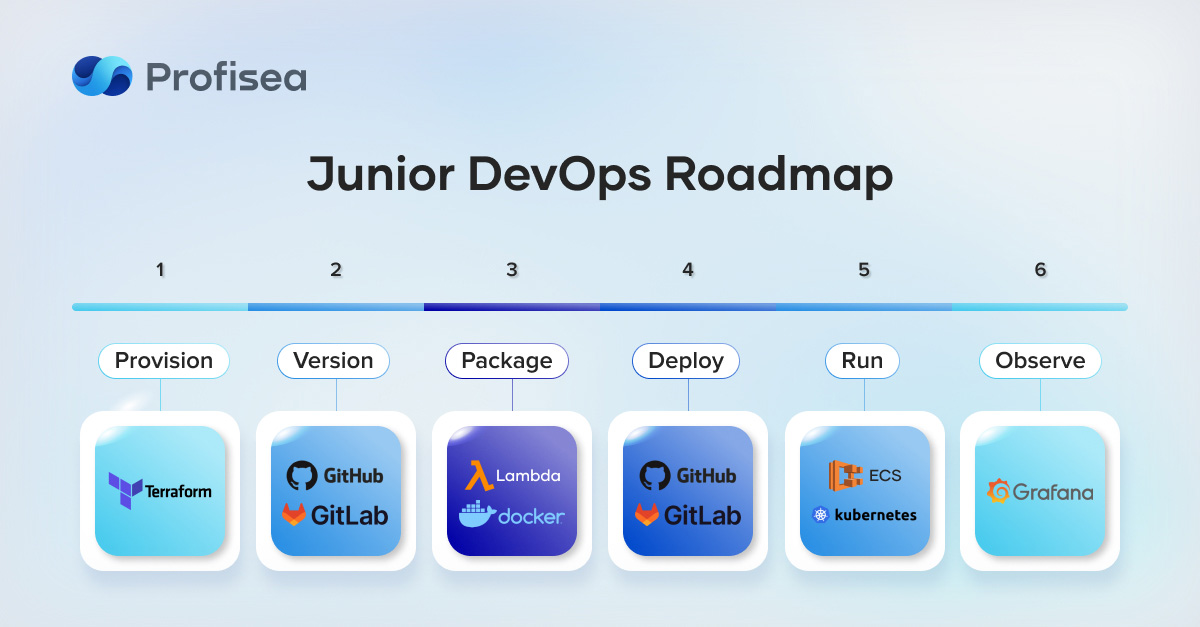
The DevOps journey begins with provisioning the computing resources needed to run developers’ code via immutable deployments. As Profisea’s best practices, Terraform and CloudFormation are used to provision infrastructure, and Ansible is used to configure it.
The versioning stage provides source code control, keeping a common codebase in a centralized location. With Git, all production artifacts are versioned, subject to tracking, review, and history of changes. You must practice Git to be confident in forking a repository, creating branches, merging changes, approving pull requests, etc.
Profisea uses complex tools like Git to enable business agility, speed up innovation, and deliver features faster — thus making your business succeed and profit.
At the deploying stage, you have to master the microservices engineering approach. As deploying software components individually is a huge pain, DevOps engineers package, deploy, and consistently run various applications. Thus, we set learning packaging as a must-have goal.
Profisea’s high-quality DevOps experts work with the most popular cloud-native approaches. Docker, AWS Lambda, and AWS Fargate are complimentary, each suited for slightly different use cases and applications.
Middle and Senior DevOps level
The biggest deploying issue is that production servers are different from development ones. You need a solution to deploy your code once to your development environment, clone the entire machine your code runs on, and then copy it everywhere it needs to go.
GitLab CI is a very powerful tool that will save hours of post-deployment headaches. An alternative to GitLab is AWS CodeDeploy to maintain application uptime.
DevOps engineer runs containers when code is written, packaged, and deployed. Today, Kubernetes is the de-facto standard of container orchestration. Another option is AWS Elastic Container Services (ECS). Remember, both Kubernetes and ECV are not easy to learn on your own, outside of a team of DevOps engineers who can support your journey.
The observability stage typically fuses the metrics collected by your applications, with traces emitted by your distributed microservices and with logs generated in your stack, into a single, coherent view.
For metrics, a good place to start is Google’s Four Golden Signals: latency, traffic, error rate, and resource saturation. For traces, these are typically enabled by the different automatic instrumentation agents, e.g. OpenTelemetry, and AWS X-Ray. For logs, just make sure you follow Elastic’s ECS Schema.
At Profisea, we also use a solid technology stack of vendor offerings to simplify the entire process. They are Grafana, the ELK Stack, Honeycomb, etc.
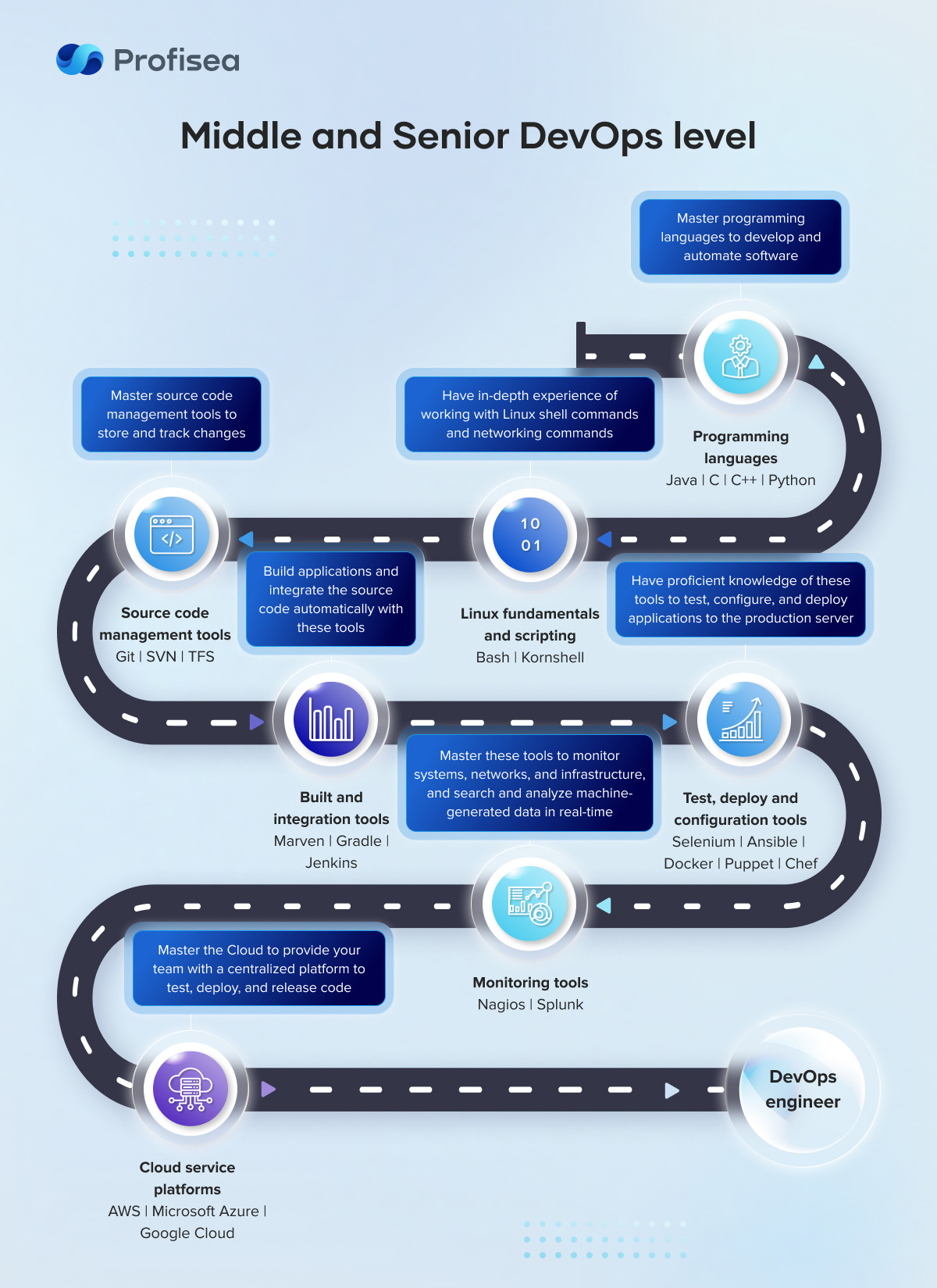
DevOps learning won’t be boring…
Profisea has done excellent work leading you on the DevOps roadmap! And we hope you will demonstrate a real commitment to DevOps learning on your way to becoming job ready. This will not be a short trip, and the roadmap is not straightforward.
But if you have the drive and passion for building a solid foundation for a long-term career as a DevOps engineer, then this roadmap will serve as a valuable guide. And it 100% won’t be boring.
Profisea is an Israeli boutique DevOps and Cloud company providing a full spectrum of Cloud Management services, from smart customization of existing Cloud Infrastructures to end-to-end Cloud Infrastructure designing & optimization that meets your vision and unique business requirements.
For more than six years, we have been implementing top practices of GitOps, DevSecOps, and FinOps, and providing Kubernetes-based infrastructure services to help businesses of all sizes – SMB, SME, or large enterprises to transform their organizational mindsets, increase productivity, and boost performance.
